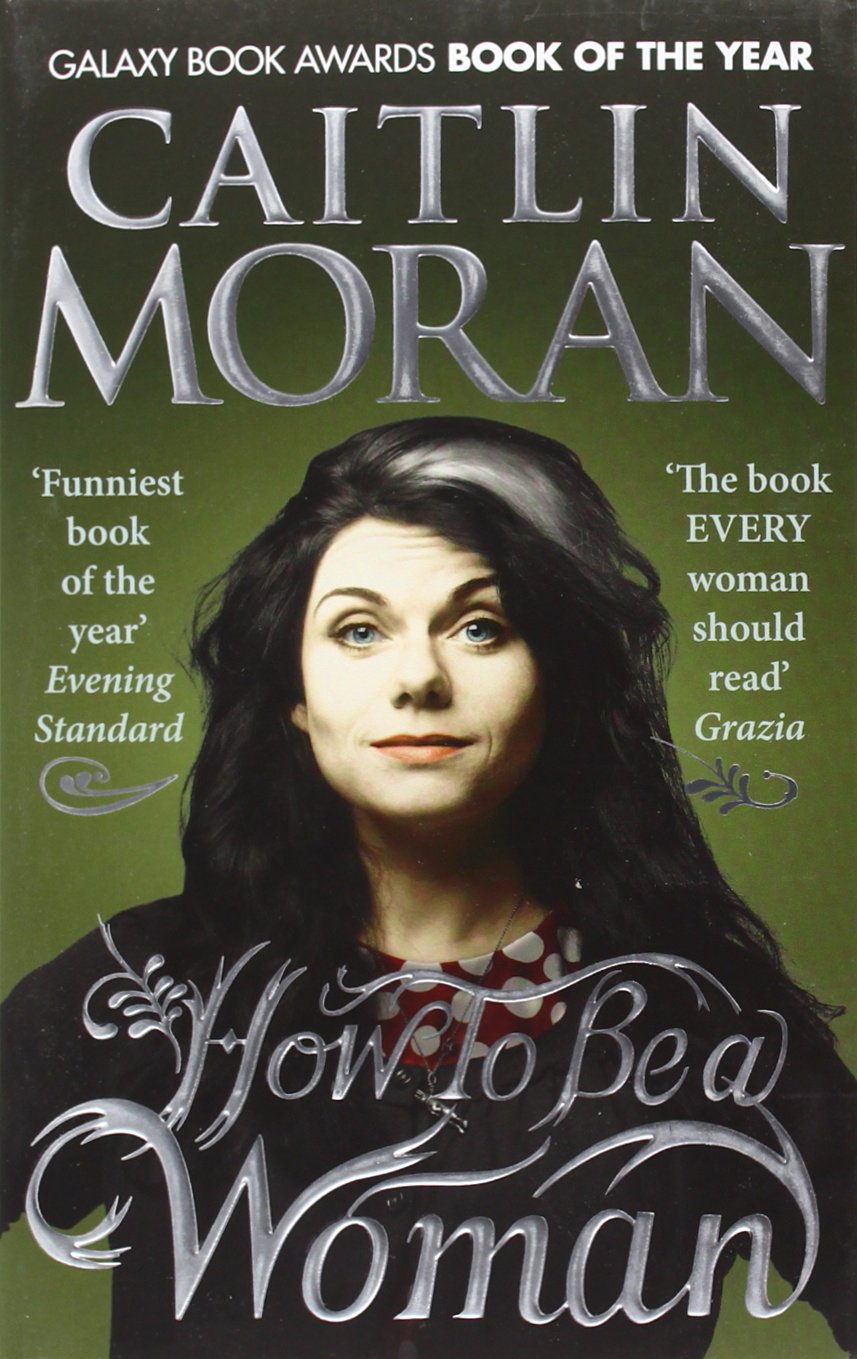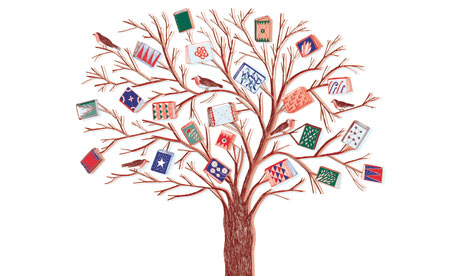 I guess first and foremost, I have to express no small degree of embarrassment about the length of time which has passed since my last post. Secondly, I have a further confession to make…I have, since I last posted, fallen into that ever-enchanting trap of re-reading. Whilst I have spent my time reading The Blessing, I have also luxuriated in the pages of Tolkien’s The Lord of the Rings trilogy and been captivated by a less fictional offering…David Crystal’s The Story of English in 100 Words.
I guess first and foremost, I have to express no small degree of embarrassment about the length of time which has passed since my last post. Secondly, I have a further confession to make…I have, since I last posted, fallen into that ever-enchanting trap of re-reading. Whilst I have spent my time reading The Blessing, I have also luxuriated in the pages of Tolkien’s The Lord of the Rings trilogy and been captivated by a less fictional offering…David Crystal’s The Story of English in 100 Words.
There you have it, confession confided.
 Before I write about The Blessing, I do want to make some attempt at justifying my falling from grace and head-over-heels into the trap of re-reading. As I have already mentioned since I began blogging, I have always had a huge tendency to submit to my obsession with re-reading my favourite books…they sit there on the bookshelf like old friends calling to me across a crowded room. Old friends who I love dearly. Old friends who have comforted me during hard times. Old friends who have inspired and succoured me over many years. It is hard to resist them; and while In my good books… has helped to loosen my dependency upon re-reading, I’m not sure I ever wish to be entirely cured of it. I love re-reading, others have asked me many times what I get from it and the answer is fairly obvious…I get something different from every book each time I read it.
Before I write about The Blessing, I do want to make some attempt at justifying my falling from grace and head-over-heels into the trap of re-reading. As I have already mentioned since I began blogging, I have always had a huge tendency to submit to my obsession with re-reading my favourite books…they sit there on the bookshelf like old friends calling to me across a crowded room. Old friends who I love dearly. Old friends who have comforted me during hard times. Old friends who have inspired and succoured me over many years. It is hard to resist them; and while In my good books… has helped to loosen my dependency upon re-reading, I’m not sure I ever wish to be entirely cured of it. I love re-reading, others have asked me many times what I get from it and the answer is fairly obvious…I get something different from every book each time I read it.
Take The Lord of the Rings books, for example, I must have read them every year since I was about fifteen. So (without divulging my exact year of birth), it’s safe to say I have been turning the pages of these lovely books for well over a decade. This summer, my parents made a big change in their lives – moving from the suburban house in the Midlands (centre of the UK) where I spent my childhood, to a rambling Victorian sea-front house on the Welsh coast. Naturally, I was there alongside them to enjoy the highs (and lows!) of such a big change. During the downtime from unpacking boxes, I felt my fingers itch; without thinking, I plucked their battered copy of Tolkien’s The Fellowship of the Ring from the bookcase and was instantly enthralled. Wales always makes me want to read Tolkien, you look out of the window and the landscape on the page simply continues across the vista.  Craggy mountains of stone, lush green woodland, and, to the West, the waves lap against the shore…for me, Middle Earth will always be Wales. So, where was I? I think I was hoping to explain and justify this year’s dalliance with Mr Tolkien. As has happened many times in my life, his words carried me through huge change and into new possibilities. Plus, I found a new pun – I’m a sucker for a good pun – Mum and Dad’s house being situated on the extreme West coast of the UK, I figure they now live in one of the ‘last homely house[s] east of the sea’.
Craggy mountains of stone, lush green woodland, and, to the West, the waves lap against the shore…for me, Middle Earth will always be Wales. So, where was I? I think I was hoping to explain and justify this year’s dalliance with Mr Tolkien. As has happened many times in my life, his words carried me through huge change and into new possibilities. Plus, I found a new pun – I’m a sucker for a good pun – Mum and Dad’s house being situated on the extreme West coast of the UK, I figure they now live in one of the ‘last homely house[s] east of the sea’.
Well, perhaps, it’s time I returned to my pre-destined course of reading and Nancy Mitford’s The Blessing. This, as frequent visitors may recall, is the third of Mitford’s books that I have reviewed. Possessing, as I do, a compilation text of Love in a Cold Climate that also contains The Pursuit of Love and The Blessing, I thought it was about time I got around to reviewing the final book.
 When I finally begun reading, I wholeheartedly enjoyed The Blessing. As I expected and hoped it is another enchanting novel about the upper echelons of British society, although, this time, it largely takes place in France. The novel centres principally around its heroine, Grace, and her relationship with her husband, the captivating Charles-Edouard. Like Mitford’s other books this novel is, ostensibly, laced with somewhat frivolous concerns in terms of the world-view, but in terms of the internal view of Grace’s relationships it does ask some weighty questions. I don’t want to give away too much of the novel’s main plot points for prospective readers, but suffice to say Mitford’s story brings to the fore the differences to be found, not only in upper class marriages, but also in French marriages compared to English ones. The story commences during the Second World War, although the bulk of the narrative takes place in later peace-time years. I think of the three Mitford novels I have read, this is perhaps the most light-hearted and (not to diminish the book in any way) trivial. However, I think it is one of my favourites. Despite Love in a Cold Climate’s being the most well-known of the books, I think, with consideration, I prefer both The Pursuit of Love and The Blessing. The characters in both of these two books are more endearing, I cared more about their journey. In some ways, this story reminded me of the plot of Madame Bovary, albeit on a slightly more moneyed level. Thankfully, though, The Blessing‘s heroine is infinity more palatable and appealing.
When I finally begun reading, I wholeheartedly enjoyed The Blessing. As I expected and hoped it is another enchanting novel about the upper echelons of British society, although, this time, it largely takes place in France. The novel centres principally around its heroine, Grace, and her relationship with her husband, the captivating Charles-Edouard. Like Mitford’s other books this novel is, ostensibly, laced with somewhat frivolous concerns in terms of the world-view, but in terms of the internal view of Grace’s relationships it does ask some weighty questions. I don’t want to give away too much of the novel’s main plot points for prospective readers, but suffice to say Mitford’s story brings to the fore the differences to be found, not only in upper class marriages, but also in French marriages compared to English ones. The story commences during the Second World War, although the bulk of the narrative takes place in later peace-time years. I think of the three Mitford novels I have read, this is perhaps the most light-hearted and (not to diminish the book in any way) trivial. However, I think it is one of my favourites. Despite Love in a Cold Climate’s being the most well-known of the books, I think, with consideration, I prefer both The Pursuit of Love and The Blessing. The characters in both of these two books are more endearing, I cared more about their journey. In some ways, this story reminded me of the plot of Madame Bovary, albeit on a slightly more moneyed level. Thankfully, though, The Blessing‘s heroine is infinity more palatable and appealing.
 As for the book’s title, which refers to the nickname Grace and Charles-Edouard give their young son, well, let me say the old idiom ‘a blessing in disguise’ comes to mind – although, in his case, the disguise is sugary sweet. Siggy (as they call him) is by no means entirely worthy of his pet name.
As for the book’s title, which refers to the nickname Grace and Charles-Edouard give their young son, well, let me say the old idiom ‘a blessing in disguise’ comes to mind – although, in his case, the disguise is sugary sweet. Siggy (as they call him) is by no means entirely worthy of his pet name.

The Blessing is engagingly written with an experienced hand. Humour and satire are penned with expert precision and Mitford’s descriptions are vivid. I have yet to be disappointed with one of Mitford’s novels, they are saturated with fleshy comical characters who you cannot help but love, despite their many faults and excessive vices. I think the message of The Blessing is one of pragmatism and acceptance. The novel is littered with disguise and deception, from the candy-clean American politician who turns out to be a Bolshevist to the evening when all of the characters attend an elaborate costume ball. However, the over-arching morality of the book seems to suggest that we should accept our loved ones for what and who they really are, warts and all. Be understanding of their faults and forgiving of their mistakes, but alongside this, do not become a doormat, forgive so that you can forget…show understanding in order to understand your loved ones better. Oh, and never spoil an already precocious child.
 As I mentioned at the beginning of this post, I have also been reading David Crystal’s The Story of English in 100 Words. Having only ever studied English Literature, and not English language, at school and university I had never encountered one of Crystal’s books before. The book was recommended to me by the course director of a phonics-based reading programme I recently trained to teach. I ordered it on something of a whim and was thoroughly rewarded. Crystal, who is traditionally more of an academic writer, has penned an entertaining, easy-read. The Story of English in 100 Words is very fun to read and educational but interesting. A hard balance to strike. I haven’t finished reading the book yet, so I won’t say anything more now, but I have already bought it as a gift and recommended it to others.
As I mentioned at the beginning of this post, I have also been reading David Crystal’s The Story of English in 100 Words. Having only ever studied English Literature, and not English language, at school and university I had never encountered one of Crystal’s books before. The book was recommended to me by the course director of a phonics-based reading programme I recently trained to teach. I ordered it on something of a whim and was thoroughly rewarded. Crystal, who is traditionally more of an academic writer, has penned an entertaining, easy-read. The Story of English in 100 Words is very fun to read and educational but interesting. A hard balance to strike. I haven’t finished reading the book yet, so I won’t say anything more now, but I have already bought it as a gift and recommended it to others.
Unsurprisingly then, I will (hopefully sooner than last time) shortly be reviewing David Crytal’s The Story of English in 100 Words.
 I know I’ve been away a while, but in all fairness I have spent my time well. I have read five books in seven volumes (a bit confusing I know, simplified that’s seven pretty big books). I am now up to date with George R. R. Martin’s A Song of Ice and Fire books and am left waiting, like the rest of the world, as he pens the next in the series.
I know I’ve been away a while, but in all fairness I have spent my time well. I have read five books in seven volumes (a bit confusing I know, simplified that’s seven pretty big books). I am now up to date with George R. R. Martin’s A Song of Ice and Fire books and am left waiting, like the rest of the world, as he pens the next in the series.



































